8 games you've probably never heard of (from series you definitely know)
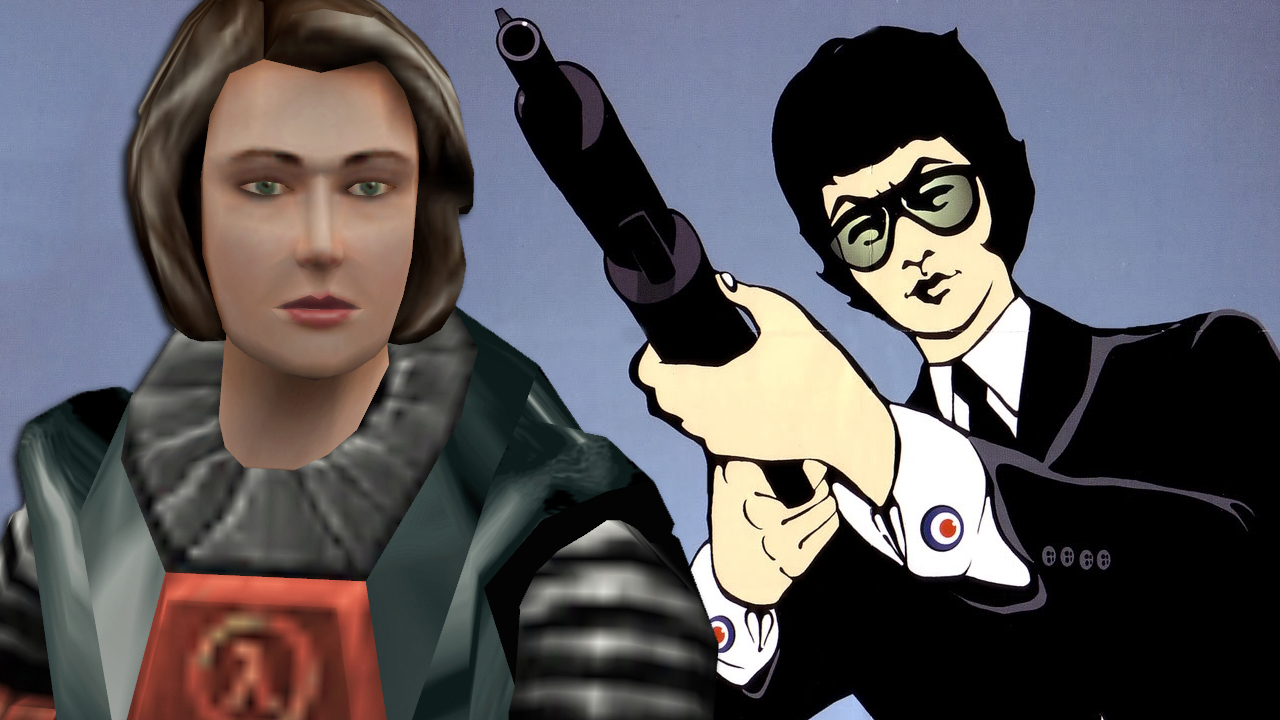
Must've missed that one
Game advertising is all but inescapable these days, with promotions for big franchises taking up space in everything from mall kiosks to thousands-of-dollars-per-second Super Bowl ads. It's gotten to the point where even those who dont really play games still have some familiarity with the sequel-laden mainstays that you and I know so well. But even amidst all the hype trains and ridiculously expensive marketing campaigns, some entries in the most universally recognized game franchises are all but forgotten to time.
There's been plenty of discussion about the weirdest spin-offs in video game history, but many of those hail from Japanese franchises that might not register with players from other parts of the world. So instead, here are the most delightfully obscure games from the most recognizable Western-made franchises on the market. Mention these to your parents, siblings, friends, teachers, whoever; you'll see their eyes light up in understanding when you say the series name, only to shift to utter befuddlement when you reach the actual title.
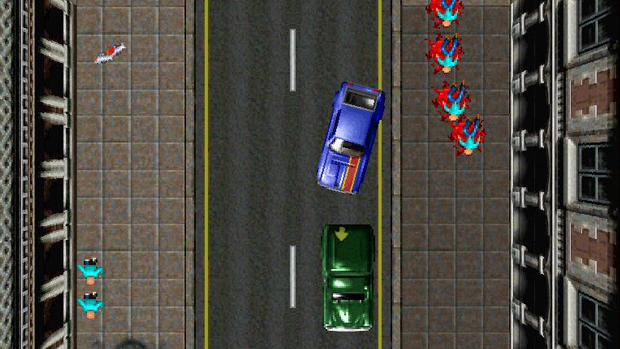
Grand Theft Auto: London, 1961
As you'll soon find, some of these little-known games have been buried under layers of history, from the days before the brand name blew up. Grand Theft Auto 3 is really when the masses started paying attention to Rockstar's brand of open-world crime sprees, so the original top-down GTA from 1997 is already pretty obscure. Even fewer people have played GTA: London, 1969, a UK-themed expansion pack that adds the entire series' only real-world location to the base game. Then, on top of all that, sits GTA: London, 1961, an expansion pack to the expansion pack. It's enough to make your head spin.
So, is it any good? Since there's barely any plot to the early GTA games, London, 1961 can't offer the same level of backstory-revealing goodness as later spin-offs like Liberty City and Vice City Stories. But if you just want to add some more content to your retro car thieving, then you might as well enjoy the extra missions added in this bit of PC-exclusive freeware.
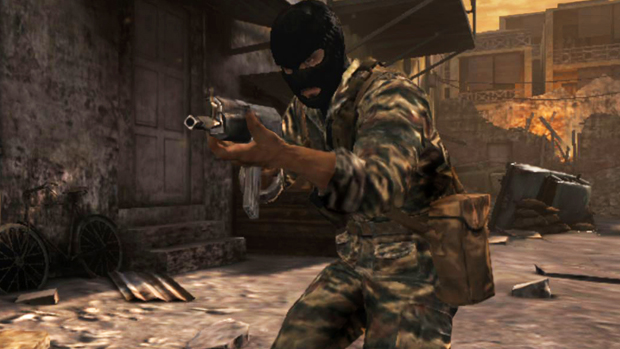
Call of Duty: Black Ops: Declassified
Contrary to what Activision would like you to believe, not every Call of Duty game is an instant best-seller. Black Ops: Declassified was put in a pretty unenviable position, releasing as a PS Vita exclusive on the same day as Call of Duty: Black Ops 2. That meant that it targeted a demographic that largely prefers its military FPS action on consoles, if they even owned Sony's struggling handheld system to begin with. Of course, it certainly doesn't help things when your game is horrendously buggy, has broken AI, and gets critically panned for boasting a single-player campaign that can be completed in less than an hour.
So, is it any good? No, unless you're a diehard CoD lore buff who's desperate to know what kind of mass murdering went down between the events of Black Ops and Black Ops 2. If Declassified has taught us anything, it's that CoD's speedy gameplay was never meant to accommodate touchscreen controls, and having two colons in your game titles looks a bit silly.
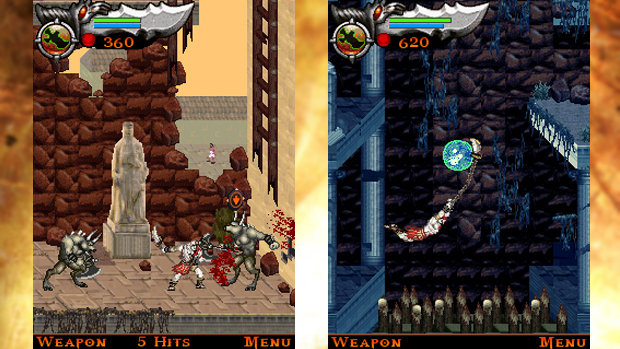
God of War: Betrayal
Kratos is a legend among gamers, known far and wide for his ability to be unreasonably angry at all times and turn any violent action into a quick-time event. Excessive bloodshed and gore has always been crucial to God of War's brand of combo-centric combat, so you might wonder how all that could possibly work on a tiny, narrow screen. God of War: Betrayal aimed to find out, plopping the Ghost of Sparta onto Java-compatible flip phones in a time before Apple's App Store even existed. Though the action shifted from 3D to 2D, there were still plenty of mythical monsters to slice through and execute with carefully timed button presses.
So, is it any good? Depends on your expectations. It's certainly a bit strange to see Kratos reduced to a dinky pixelated sprite, and the lack of music or sound effects beyond the occasional, singular drum beat makes the brutal beatdowns feel about as epic as a stroll through the library. But given the limitations of the Java engine, it's impressive that Betrayal still manages to retain the pace and flow of God of War combat on a 2D plane, even if you're mashing the 'OK' button instead of Square.
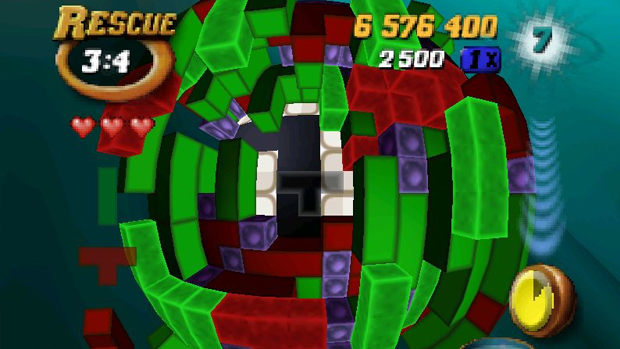
Tetrisphere
Over 30 years later, stacking blocks and making them disappear in Tetris still hasn't gotten old. The formula is almost too perfect, since any attempts to jazz it up usually end up feeling convoluted or gimmicky. That didn't stop the N64-exclusive Tetrisphere from trying, taking the basic tetromino-dropping gameplay and wrapping it around a giant orb of colored blocks. In addition to the procession of shapes, you can also use an array of unorthodox puzzle power-ups like magnets and ray guns to bore to the center of the Tetrisphere a little quicker. And for whatever reason, you've got a bunch of bug-eyed androids to keep you company (none of which seem remotely Russian).
So, is it any good? Yes, actually. Having to manipulate pieces in a 3D space bends your brain out of its Tetris comfort zone, and there's a lot more blocky real-estate to cover in search of the perfect fit for your current piece. Also, the techno-rave soundtrack is pretty rad.
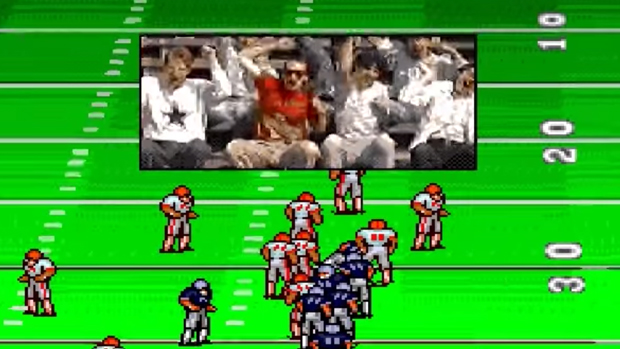
John Madden Duo CD Football
The Madden NFL series spans a whopping five console generations and counting, which is pretty staggering to think about. And at the same time that the Sega Genesis and Super Nintendo were getting annual Madden sequels starting as early as 1990, only one entry in the series ever made it to the Turbo Duo console. To understand why, ask yourself: did you or anyone you know even own a Turbo Duo? If you answered 'yes', then you might also be familiar with that GI Joe reject Johnny Turbo. But what was I talking about again? Oh, right: 16-bit Madden on an unpopular console that tried implementing disc drives just a bit too early.
So, is it any good? Not unless you're a sucker for FMVs peppering all the sluggish gridiron action, including such riveting live-action scenes as the game-opening coin toss (complete with slow zoom on the quarter) and three-second-long endzone celebrations. But I can safely say that there is no greater virtual representation of John Madden than the wildly gesticulating sprite on the title screen.
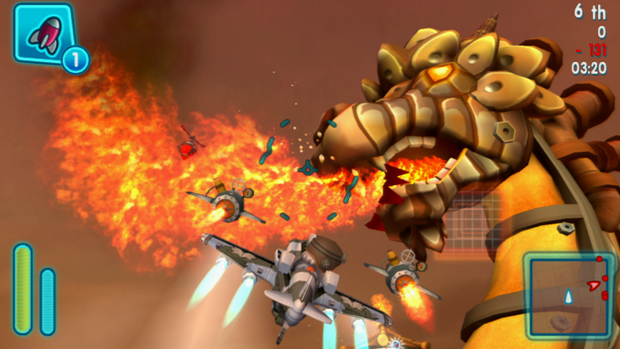
MySims SkyHeroes
The Sims is one of the most successful game franchises of all time, delighting players with just the right mix of mundane suburban life and godlike power (including, but not limited to, trapping your Sims in the bathroom until they die). For those who prefer the chibi style of character design in something like MapleStory, there's MySims, a spin-off full of super-deformed denizens to occupy your virtual dollhouse. And beyond that is a series of spin-off spin-offs that have nothing to do with domestic life. Instead, these games involve minigame parties, kart-racing, kid-friendly espionage, or - in the case of SkyHeroes - full-on aerial dogfighting and races through mid-air checkpoints.
So, is it any good? Heck yeah. For my money, I'll always go with a goofy, colorful flight combat game over something that aims for photorealism like Ace Combat, especially if it can tap into the nostalgia of Star Fox and Diddy Kong Racing. Plus, those little customizable jet fighters are just adorable.
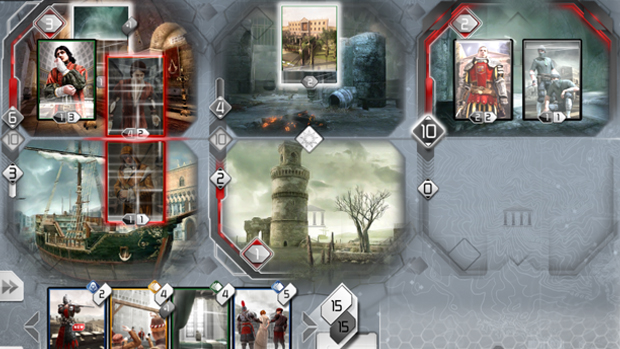
Assassin's Creed: Recollection
A full year before Uncharted: Fight for Fortune turned third-person action into a surprisingly fun card game, Assassin's Creed took a stab at the world of CCGs with the Recollection app on iOS. The game itself is actually just called Tactics, to be exact: a real-time duel where players summon Animus memories instead of casting spells. Despite there only being three main areas on the board, the strategy is quite complex, since you'll be micromanaging your agent cards to vie for territory control all while a day-cycle timer constantly ticks down. Outside of the matches, there's also plenty of opportunity for creative deckbuilding, given the sizeable 200+ card pool.
So, is it any good? Yes. Like any CCG, this game makes its money through in-app purchases used to buy card packs, so stay away if you can't use your virtual wallet responsibly. But for any AC fan craving a strategic change of pace, Tactics (alongside all the other supplementary concept art and cutscenes in Recollection) makes for an impressively worthwhile companion app.
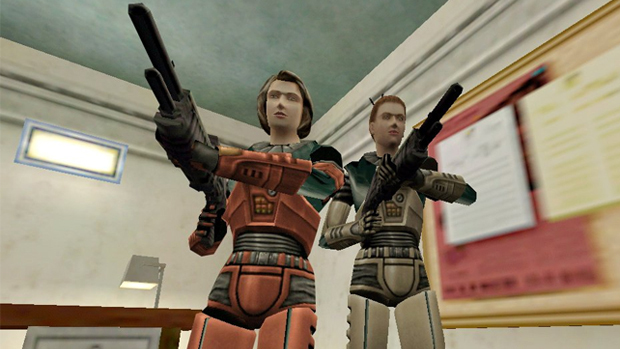
Half-Life: Decay
You can't make it ten clicks through the internet without someone cracking a (very likely weak) Half-Life 3 joke. But everyone's who's clamoring for fresh, unfamiliar content in Valve's seminal FPS series should take it upon themselves to seek out the little-known Half-Life: Decay. It's understandable that PC-centric players might've missed it, since this expansion was developed exclusively for the PlayStation 2 port of Gordon Freeman's first interdimensional escapade. Here's the thing: instead of controlling Freeman on his lonesome, Decay is actually a co-op campaign starring two female scientists - Colette Green and Gina Cross - that occurs parallel to Gordon's adventure during the Black Mesa Incident.
So, is it any good? Most definitely. Defending yourself against Xen aliens and the military clean-up crew is just as fun with a buddy by your side, as reinforced in Half-Life 2 - and unlike Alyx Vance, this player-controlled teammate doesn't have to deliver dialogue that awkwardly dances around the fact that you never speak. And Decay's emphasis on two-woman, first-person puzzles almost seems like a precursor to Portal 2's co-op. Plus, there's a secret mission that lets you can play as a Vortigaunt. Oh yes.

Lucas Sullivan is the former US Managing Editor of GamesRadar+. Lucas spent seven years working for GR, starting as an Associate Editor in 2012 before climbing the ranks. He left us in 2019 to pursue a career path on the other side of the fence, joining 2K Games as a Global Content Manager. Lucas doesn't get to write about games like Borderlands and Mafia anymore, but he does get to help make and market them.


